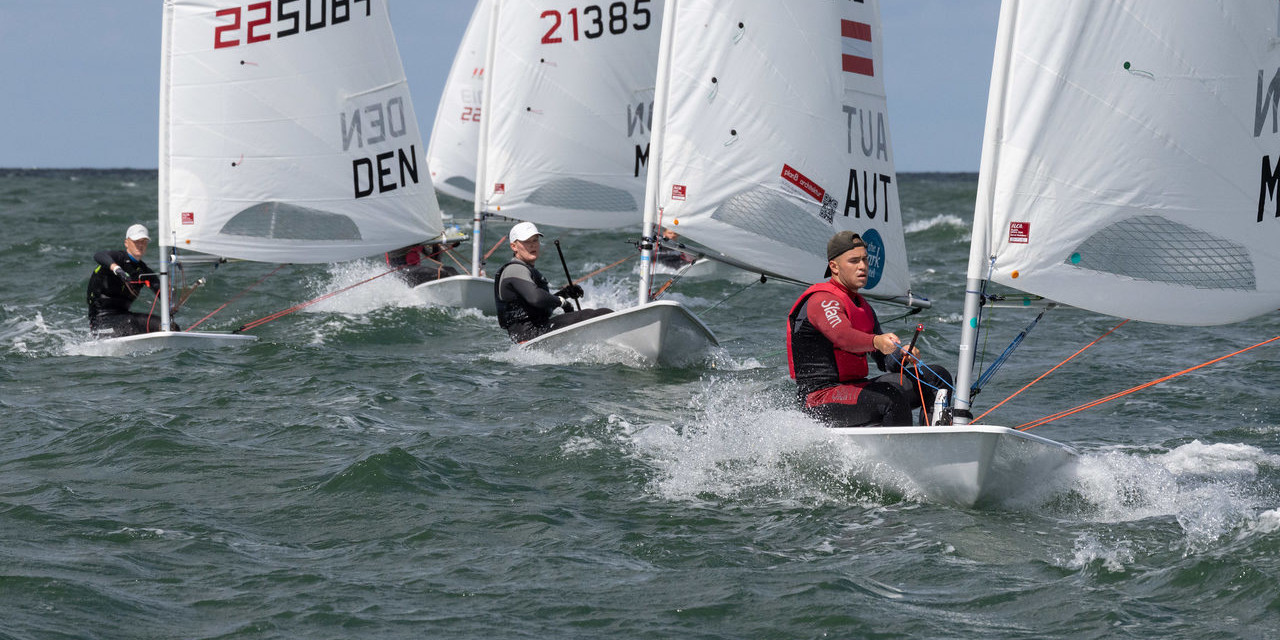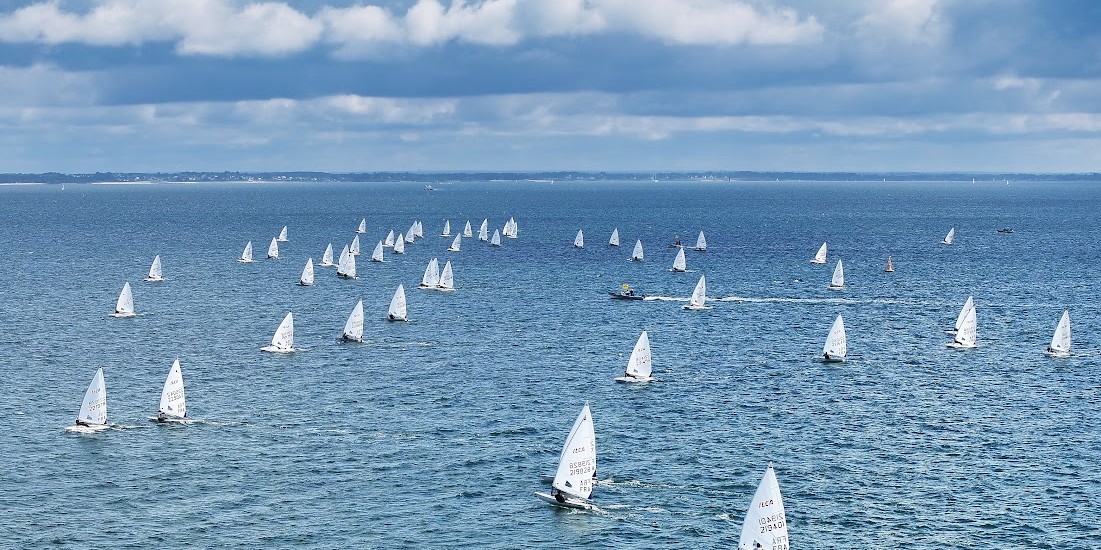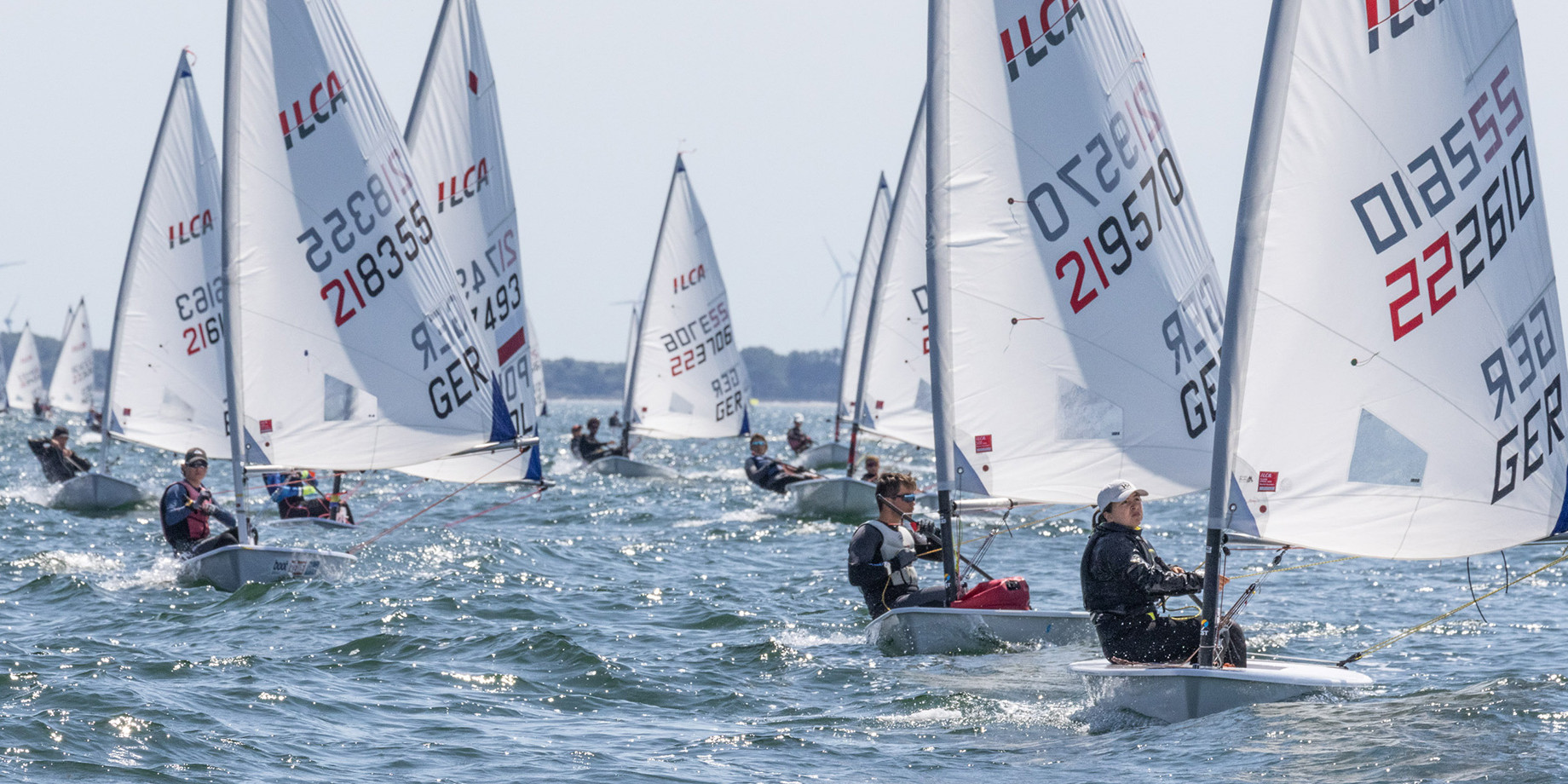Monaco, 22 septembre 2020
Monaco, September 22, 2020 – As part of the Planetary Health Week under the aegis of the Foundation Prince Albert II, and the Monaco Capital of Yachting Experience initiated by and held at the Yacht Club de Monaco (YCM), Yacht Club de Monaco invited medical and yachting experts to explain to members of the Captains’ Club how the lock-down resulting from the Covid-19 pandemic has impacted and will impact the yachting industry.
The session began with a trip to the heart of the invisible, Mrs. Virginie Guillerm, Director of Development of the Health, Research and Life Sciences sectors for Groupe Pingat, explaining the modes of aerosol transmission of the coronavirus — or how a tiny organism can remain suspended in the air for up to 16 hours before attaching itself to a target. She then detailed the differences between asymptomatic patients and those severely affected by the infection, due to an excessive immune response. Finally, she addressed the crucial point for yachting of the spread of the virus in an enclosed space, highlighting the following key elements to counter it: the importance of ventilation speed to disperse and eliminate airborne viruses, the limitation of their presence by the use of 100% blown air with good HVAC filters, and completion of the set with an air purification system in order to increase air changes and reduce the levels of particles generated by indoor contaminants.
A public health inspector in Monaco, Dr. Eric Voglio recalled the importance of barrier gestures, which are all the more important in a confined space. He also insisted on the need for regular disinfection and the need to require PCR testing for all newcomers on board, especially when a yacht goes to a port notoriously known to be “covid-friendly”, particularly in tourist areas conducive to celebration. Fortunately, he confirmed that Monaco remained a safe place to welcome yachting visitors.
Finally, Dr. Olivia Keita-Perse, an infectious disease specialist at the CHPG and Covid contact person, talked about the conditions of propagation of the virus and highlighted that the mask is an essential tool because the virus is transmitted mostly “by droplets”, when we cough, talk or sneeze. She confirmed that 15 to 20% of contaminations result in hospitalization, and 2 to 5% in intensive care, with an average incubation period of 5 days, whilst infectivity begins two days before the onset of symptoms and lasts from 7 to 10 days.
Following these detailed presentations, participants of the Captains Forum were treated to a combined analysis of the Covid-19 on yachting by Stewart Campbell, Chief Editor of leaving yachting magazine Boat International, and Merin de Waard, Founder and CEO of leading online yachting platform Superyacht Times.
Stewart Campbell’s data highlighted a number of key findings, relating to brokerage sales and fleet movements. Interestingly, in spite of a huge drop in sales during the lock-down from March to May 2020, year-on-year figures only show a difference of 20% fewer sales by mid-September 2020, with a significant surge in August — in short, the deals that were not completed over Spring still proceeded and many were finalized by the end of the Summer, with only 10% difference in average value between the 2019 and 2020 deals. This situation has however resulted in a 33% difference in the total value of the deals concluded so far, year-on-year, which does indicate that there has been a decline in both value and volume of business as a consequence of the pandemic. Nevertheless, the recent rebound from Summer sales figures leaves the professionals rather optimistic.
Looking into superyacht fleet movements across traditional yachting playgrounds in Europe, America and the Caribbean, Boat International’s presentation made it quite adamant that the countries most impacted were those very same ones most touched by the pandemic. When Spain, France and Italy had on average 20% fewer yachts cruising their waters between May and August, Croatia experienced a 20% increase in traffic. Across the Atlantic, figures were even more telling: with many superyachts not able to return to locked Europe for the Spring Summer season, Florida and the Caribbean had more than 50% increase in traffic over that same period.
Merijn de Waard then touched upon the consequences of superyacht construction completions during the Spring lockdown, which strongly impacted most shipyards in Europe, especially in Italy. With only about half the level of completions of the entire 2019 reached by end of August 2020, it was made clear that there has been a three-month delay, with activity recovery being real since the end of the general lock-down.
Looking at new contract sales, the perspectives are not bright. Over the first eight months of 2020, the total number of deals signed only reached a third of last year’s total figures. With expectations from yachting professionals for end-of-year results to reach 20% less than 2019, the long-term perspectives are, at this stage, rather pessimistic.
Merijn de Waard also explained that perspectives for refit yards remain positive, with most reporting high level of activity, in line with previous years or even exceeding 2019 figures. The conclusion being that, unlike in the aftermath of the Global Financial Crisis back in 2008-09, the yachting industry has only, so far, been impacted temporarily.
Paul Flannery, Director of the International Yacht Brokers Association (IYBA) based in the US, went on to explain that the drop in activity in the USA during the late Spring lock-down was compensated by a rise of business and boat sales over the summer, which makes the year-on-year figures relatively similar. Interestingly, Paul highlighted how there has been a strong appetite from the younger generations to go boating. Although this analysis covers the entire spectrum of boat sales, from small to large units, it does indicate that the perspectives for the future are positive: prospective clients have not deserted the yachting arena as a consequence of the Covid-19 pandemic.
The conclusion is that the yachting industry has shown resilience in these troubled times, but it remains difficult to make projections beyond the end of this year – with the evolution of the pandemic situation globally being a key factor to determine whether the industry will face harder times or not.
>> Watch again the replay of the Yachting & COVID-19 conference, click here
Dernières publications
15 July 2024
Celebration of youth
Celebration of youth Youth Sailing World Championships – Riva del Garda 15-19 July 2024 The…
14 July 2024
Monegasques out in force
Monegasques out in force French Open - Quiberon 11-14 July Laser sailors from Yacht Club de…
14 July 2024
Consistency on every start
Consistency on every start ILCA 7 - EurILCA Europa Cup GER – Warnemünde 6-14 July Consistency was…



